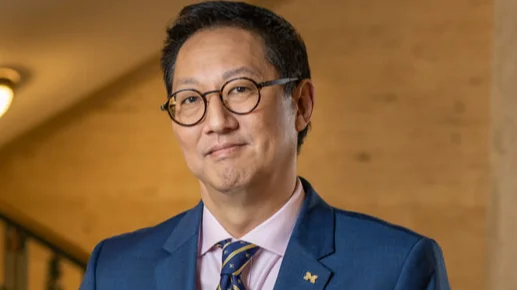Santa J. Ono, Ph.D. President at University of Michigan - Ann Arbor | Official website
Santa J. Ono, Ph.D. President at University of Michigan - Ann Arbor | Official website
Professional sports teams turned their focus towards supporting local communities during the COVID-19 pandemic, according to a University of Michigan study. The research, conducted by Kathryn Heinze and her team, looked into how men's professional sport leagues adapted their community outreach at the pandemic's onset.
Heinze, an associate professor at the U-M School of Kinesiology, noted that the leagues shifted their focus to aid people and businesses directly impacted by the pandemic. "This has been somewhat of an unanswered question: How fast can organizations adapt during a crisis? We see in these data that in the first few months, sports leagues were making these shifts in their community engagement approach during the height of the pandemic, and not abandoning their local communities," she explained.
The study, using the pandemic as a "natural experiment," found that the leagues addressed areas such as food security, mental health, and virtual volunteering. Some teams adapted by turning their websites into "information hubs" or buying food from struggling local restaurants for donation.
Several teams collaborated across leagues for community support, with noted partnerships including the Los Angeles Clippers, Lakers, and Kings, and the Denver Nuggets and Colorado Avalanche. These efforts focused on youth education and mask distribution, among other initiatives.
The study did note a decrease in attention to environmental sustainability and cultural appreciation, as resources were redirected to immediate pandemic-related needs. Heinze remarked on the shifts observed: "It wasn’t that these issues were completely absent from sports leagues’ attention before the pandemic. It was just that we saw more engagement with programs and events that had to do with those areas than prior to the pandemic."
The findings also highlighted creative approaches by teams in addressing community needs, such as purchasing and donating to tackle food insecurity or support frontline workers. Researchers plan to explore how these shifts in engagement might endure beyond the pandemic's onset. "We don’t want to overstate that there was a big shift between these two periods. It was more of a reorientation," Heinze said, acknowledging that while some programs were postponed or canceled, overall responses reflected a positive adaptability.





 Alerts Sign-up
Alerts Sign-up